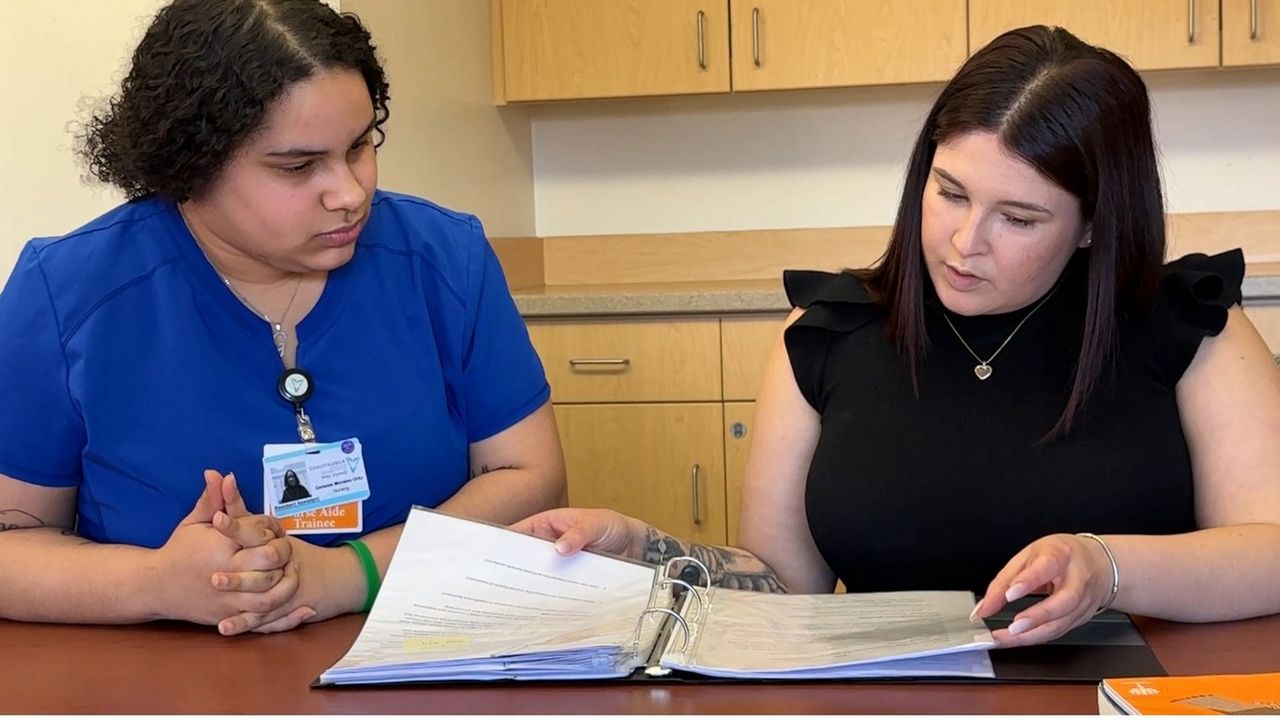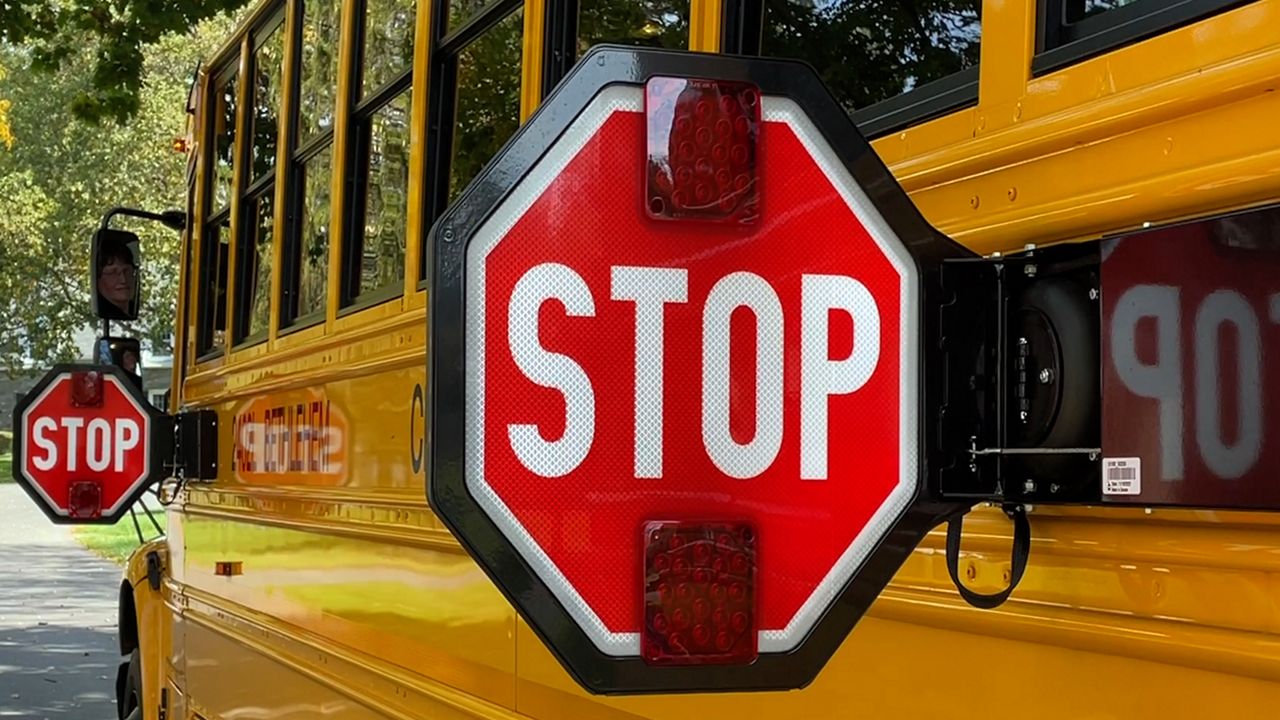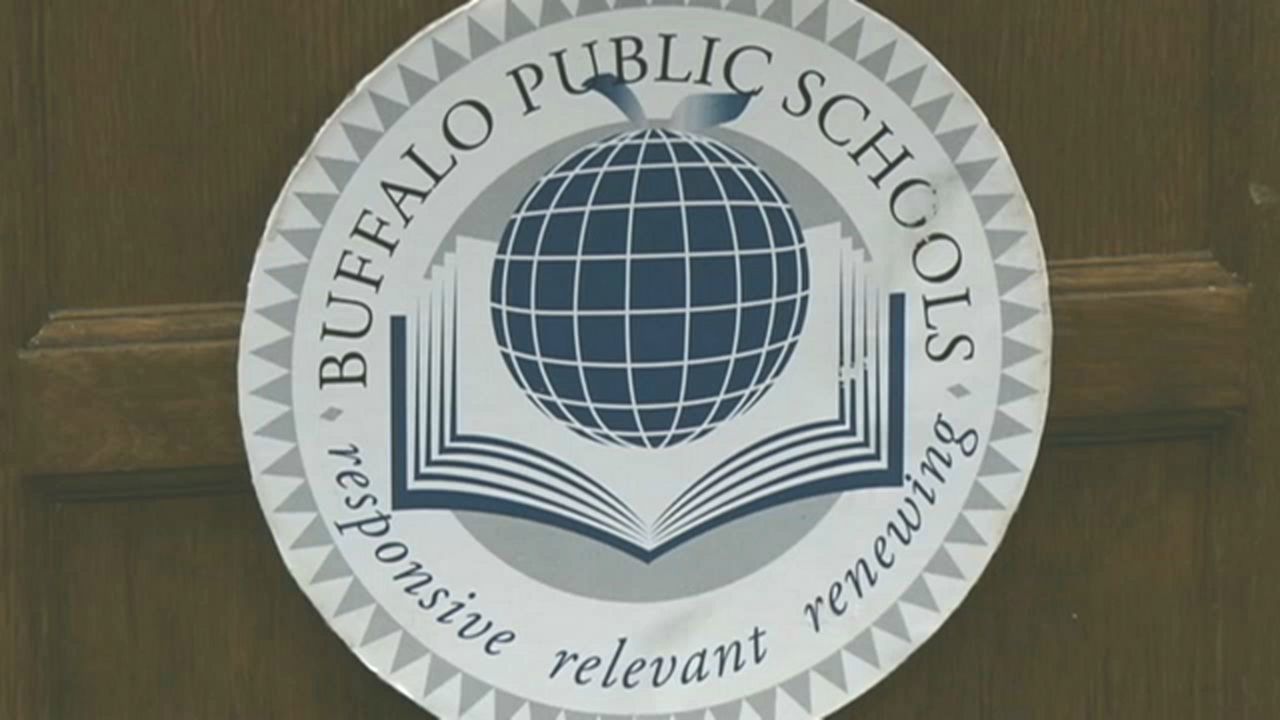BUFFALO, N.Y. — The National Assesment of Education Progress, or NAEP, is the largest nationally representative and continuing assessment of what students know and are able to do in various subjects.
The 2019 NAEP Report Card for reading shows 18% of Black fourth-graders performed at or above the NAEP proficient level.
Compare that to 45% of white fourth-graders who performed at or above the NAEP proficient level.
One Buffalo group is working to tackle that literacy gap.
Ruqayyah Simmons and Jelicia Jimenez are the founders of an organization called Black Boys Read Too, Incorporated.
"I’m a fifth-grade teacher," said Simmons. "I found that there’s been a lot of gaps, especially with African American boys in my classroom and other classrooms that I’ve been involved in. And so we’re just trying to find ways to put books into the hands of boys."
Simmons teamed up with Jimenez, a library and media specialist at Elmwood Village Charter School and the two started an initiative called Barbershop Bookshelves. They bought books using their own money and set up bookshelves in three barbershops in Buffalo. Why barbershops?
"We thought of barbershops as meeting places and we were kind of thinking about how sometimes kids might pull out a tablet instead of really having a moment to read a book and interact with their families, so we thought and so we thought this was a really good spot for this to happen," said Jimenez.
Simmons says barbershops are traditionally a place where young African American boys go with their male family members. Everyone gets their haircuts on the same day and it turns into an all-day experience.
Justin Barker agrees.
"The camaraderie, the relationships, the mentoring aspect of it that takes place in a very huge and intimate way here in a barbershop," said Barker, who owns The Standard in Buffalo. "With this initiative, with these books and different things of that nature, it definitely lends to the need to open the conversation to get back to the kind of the family, the post of what’s going on with our community with our black boys."
Simmons says she finds that it’s easier to get the young African American girls in her class to read because there are tons of books that are geared towards them. She says it’s more of a challenge to get young boys to pick up books. The goal was to find books that showed African American boys images that they can relate to, so Simmons and Jimenez selected books with black characters, protagonists, heroes and role models in them.
There are also books that cater to young black girls as well because sisters go with their brothers to barbershops.
Simmons says this is a start to tackling the literacy gap African American children face.
"It’s always been inner city students, African American and children of color," said Simmons. "There are just less resources in city schools and a lot of times those are students who can’t afford the tutors, and their parents are working multiple jobs so they don’t have the support often times."
Simmons says a lot of her students, even those who have involved parents, don’t have a lot of books at home. She says they’re reading at school, and if they’re not reading at school, then they’re not reading at all. That’s why she and Jelicia hope to spread Black Boys Read Too further.
"Big dreams is to take it into other cities, maybe nation-wide, and we’re really looking forward to hosting some literacy pop-up events around the community," Jimenez said.
You can find more information about future Black Boys Read Too events on their Instagram page.
It's a great opportunity for kids. There are similar opportunities for people of all ages.
Dozens of Little Free Libraries are set up across Western New York. It's part of a worldwide movement where you can take a book, or leave a book, all for free.
The neighborhood libraries can be built by just about anybody.
For more information, click here.









